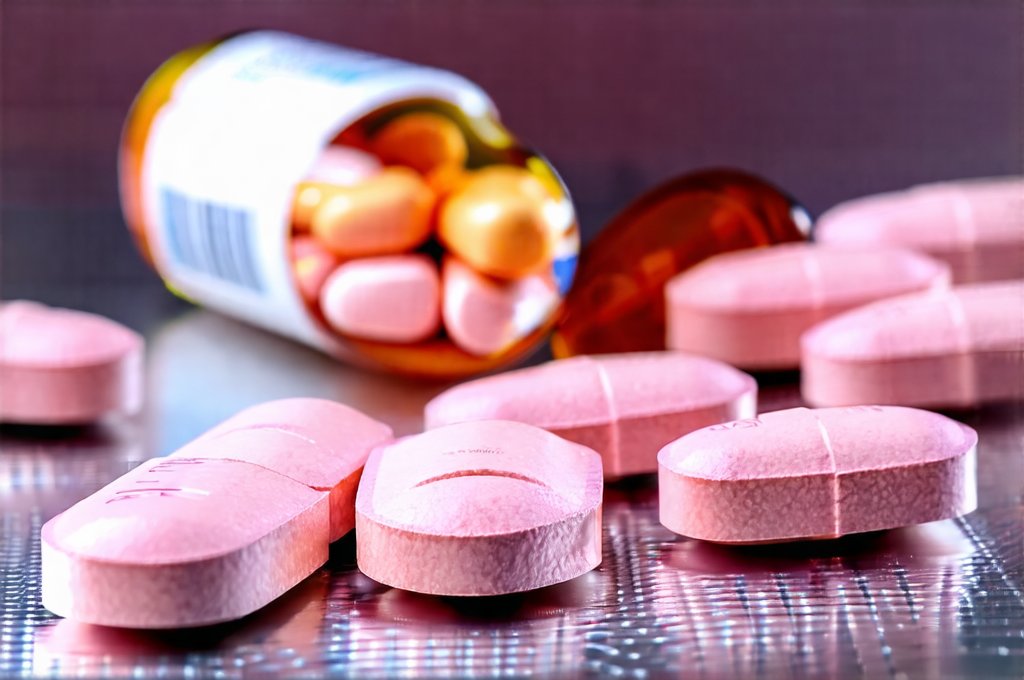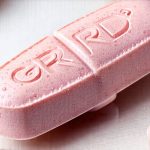Gastroesophageal reflux disease (GERD), commonly known as acid reflux, affects millions worldwide, causing heartburn, regurgitation, and sometimes more serious symptoms. Many find relief through over-the-counter or prescription medications like proton pump inhibitors (PPIs) and H2 receptor antagonists. However, a frustrating reality for some is that these medications can stop working effectively over time. This isn’t necessarily a sign of worsening disease; it often indicates changes in the underlying causes or how your body responds to treatment. Understanding why this happens, and what steps you can take when reflux medication loses its potency, is crucial for managing your condition long-term and maintaining quality of life.
The effectiveness of acid reflux medications isn’t always permanent. Several factors contribute to this phenomenon, ranging from lifestyle habits to physiological adaptations within the digestive system. Initially, medications are highly effective at suppressing acid production or reducing stomach acidity. But continued use can sometimes lead to tolerance, where your body adjusts and produces more acid to compensate for the suppression – a process called rebound acid hypersecretion. More importantly, many people experience reflux due to factors beyond just excessive acid; issues like a weakened lower esophageal sphincter (LES), hiatal hernia, or even delayed gastric emptying play significant roles. Medications address symptoms, but don’t always tackle these root causes. Therefore, when medication stops providing adequate relief, it signals the need for a more comprehensive evaluation and potentially a shift in management strategies. If you are experiencing ongoing issues, learning what happens can be helpful.
Understanding Medication Tolerance & Beyond
When your reflux medication ceases to be effective, one of the first things to consider is tolerance. PPIs, in particular, can lead to this over time. The body attempts to maintain homeostasis – a state of balance. By consistently blocking acid production with a PPI, the stomach may respond by increasing the number of cells that produce acid, or making existing cells more efficient at it. This isn’t always the case for everyone, but it’s a common reason why medications seem to lose their punch. H2 receptor antagonists are less likely to cause tolerance compared to PPIs, but can still experience reduced efficacy with prolonged use.
However, attributing decreased effectiveness solely to tolerance is an oversimplification. Often, the underlying cause of your reflux has changed or evolved. For instance, weight gain, dietary changes (increased consumption of trigger foods), stress levels, or even a new medical condition could all contribute to worsening symptoms. A hiatal hernia can progress, causing more frequent reflux episodes. Delayed gastric emptying – where food stays in the stomach longer than it should – can also become more pronounced over time, leading to increased acid production and pressure on the LES. Therefore, simply increasing the dosage of medication isn’t always the answer; a deeper investigation is usually required. Understanding what to eat when your gut is inflamed can also help manage symptoms.
It’s important to remember that medications are often used as a bridge while addressing underlying lifestyle factors or seeking more definitive treatment options. Relying solely on medication without tackling these root causes can lead to long-term dependency and potentially mask developing problems. The goal should be to minimize medication use as much as possible, focusing instead on sustainable strategies for managing reflux.
Lifestyle Modifications: A Cornerstone of Management
Lifestyle modifications are often the first line of defense when medications lose their effectiveness. These changes aim to reduce acid production, strengthen the LES, and improve overall digestive health. Implementing these changes consistently can significantly alleviate symptoms and potentially reduce reliance on medication.
- Dietary Adjustments: Identify and eliminate trigger foods. Common culprits include fatty or fried foods, chocolate, caffeine, alcohol, mint, spicy foods, citrus fruits, and carbonated beverages. Eating smaller, more frequent meals instead of large ones can also help.
- Weight Management: If you are overweight or obese, losing even a small amount of weight can dramatically reduce pressure on the abdomen and LES, lessening reflux episodes.
- Elevate Head of Bed: Raising the head of your bed by 6-8 inches using blocks or a wedge pillow helps gravity keep stomach acid where it belongs – in the stomach.
- Avoid Late Night Eating: Allow at least 2-3 hours between your last meal and bedtime to give your stomach time to empty before lying down.
- Quit Smoking: Smoking weakens the LES, increasing the risk of reflux.
These modifications require commitment and consistency, but they are often more effective in the long run than simply taking medication. They address the underlying issues contributing to your reflux, rather than just masking the symptoms. Consider keeping a food diary to track which foods exacerbate your symptoms and adjust your diet accordingly. If you’re unsure about reintroducing certain foods, consider what to do when reintroducing trigger foods.
Exploring Alternative Therapies & Treatments
Beyond lifestyle modifications, several alternative therapies and treatments may offer relief when medications are insufficient. These options range from natural remedies to more advanced medical interventions. It’s essential to discuss these with your doctor before trying them, as they may not be suitable for everyone or could interact with other medications you’re taking.
One avenue to explore is probiotics. While research is ongoing, some studies suggest that certain probiotic strains can help improve gut health and reduce reflux symptoms by modulating the gut microbiome. Other natural remedies like ginger (known for its anti-inflammatory properties) and chamomile tea (which may soothe the digestive system) have been used traditionally to alleviate heartburn, but their effectiveness varies from person to person.
For more persistent cases, medical interventions might be necessary. These include:
– Endoscopy: A procedure where a thin, flexible tube with a camera is inserted into your esophagus to visualize any damage or abnormalities.
– Esophageal Manometry: A test that measures the pressure and function of your esophagus and LES.
– pH Monitoring: A test that measures the amount of acid in your esophagus over a period of time, helping to determine the severity of reflux.
– Fundoplication: A surgical procedure used to strengthen the LES by wrapping the top part of the stomach around the lower esophagus. This is typically reserved for severe cases where other treatments have failed.
When to Seek Further Medical Evaluation
It’s crucial to seek further medical evaluation if your reflux medication stops working and lifestyle modifications aren’t providing sufficient relief. Don’t attempt to self-treat indefinitely or simply increase your dosage without consulting a healthcare professional. Several warning signs indicate the need for prompt attention:
- Difficulty Swallowing (Dysphagia): This could signal esophageal damage or narrowing.
- Unintentional Weight Loss: Could be indicative of a more serious underlying condition.
- Severe Chest Pain: While often mistaken for heart attack symptoms, it’s essential to rule out cardiac issues immediately.
- Persistent Vomiting: May indicate complications such as esophageal strictures or ulcers.
- Black or Bloody Stools: Suggestive of bleeding in the digestive tract.
Your doctor may recommend further testing – like those mentioned above – to identify any underlying causes, assess the extent of damage, and determine the most appropriate course of action. They can also evaluate whether you’ve developed tolerance to your medication and adjust your treatment plan accordingly. Never disregard persistent symptoms or attempt to self-diagnose. If a supplement may be causing issues, what to do if you react to supplements is important to know. A proactive approach to managing reflux is key to preventing complications and maintaining long-term health and wellbeing. If cooking feels overwhelming, consider what to cook when everything triggers you.


















